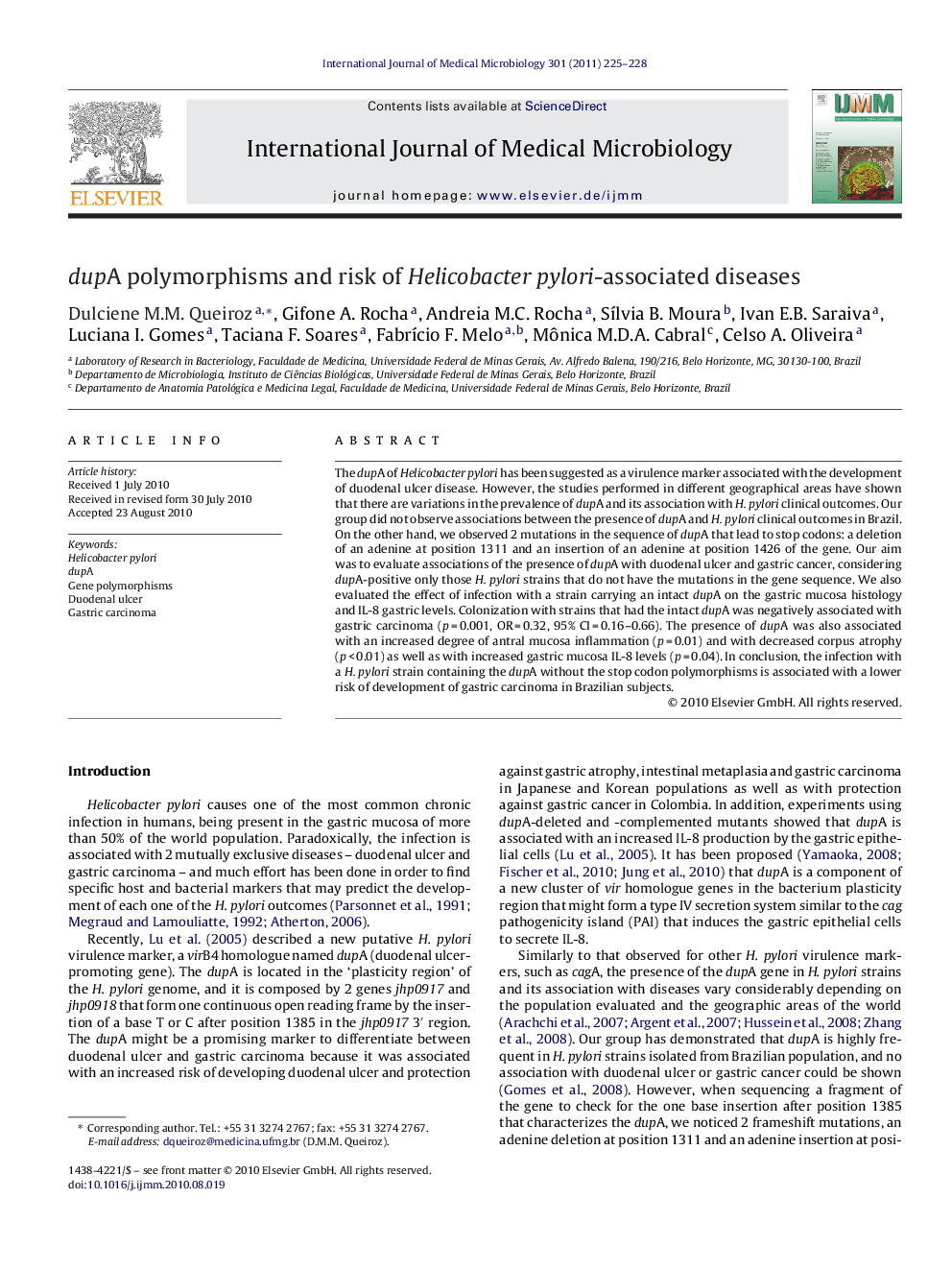| Article ID | Journal | Published Year | Pages | File Type |
|---|---|---|---|---|
| 2054481 | International Journal of Medical Microbiology | 2011 | 4 Pages |
The dupA of Helicobacter pylori has been suggested as a virulence marker associated with the development of duodenal ulcer disease. However, the studies performed in different geographical areas have shown that there are variations in the prevalence of dupA and its association with H. pylori clinical outcomes. Our group did not observe associations between the presence of dupA and H. pylori clinical outcomes in Brazil. On the other hand, we observed 2 mutations in the sequence of dupA that lead to stop codons: a deletion of an adenine at position 1311 and an insertion of an adenine at position 1426 of the gene. Our aim was to evaluate associations of the presence of dupA with duodenal ulcer and gastric cancer, considering dupA-positive only those H. pylori strains that do not have the mutations in the gene sequence. We also evaluated the effect of infection with a strain carrying an intact dupA on the gastric mucosa histology and IL-8 gastric levels. Colonization with strains that had the intact dupA was negatively associated with gastric carcinoma (p = 0.001, OR = 0.32, 95% CI = 0.16–0.66). The presence of dupA was also associated with an increased degree of antral mucosa inflammation (p = 0.01) and with decreased corpus atrophy (p < 0.01) as well as with increased gastric mucosa IL-8 levels (p = 0.04). In conclusion, the infection with a H. pylori strain containing the dupA without the stop codon polymorphisms is associated with a lower risk of development of gastric carcinoma in Brazilian subjects.
